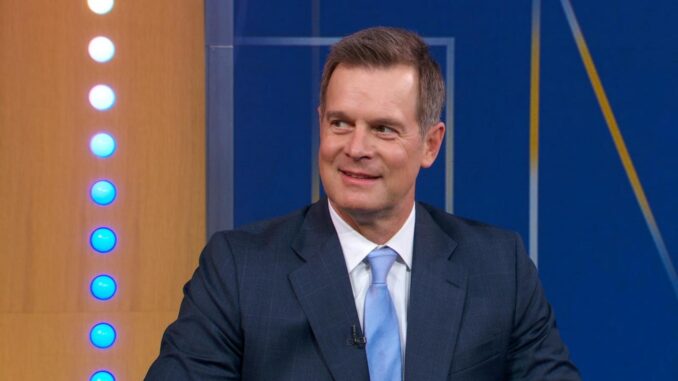
When you hear the words “Bobby’s in a coma”, your mind instantly races. Is he going to wake up? Was everything we saw leading up to this moment real? Or was it all just an elaborate dream? This storyline has left fans scratching their heads, creating endless debates, theories, and late-night Google searches. Let’s break it all down and dive into the heart of this twist, explore the dream theory, and uncover why Bobby’s coma has become such a pop culture phenomenon.
The Shocking Reveal: Bobby’s Coma
One minute Bobby was the rock of the story, the next he’s in a coma. The twist didn’t just shock fans—it flipped the narrative upside down. Suddenly, questions about what’s real, what’s imagined, and what’s to come took center stage.
Why the “It Was All a Dream” Trope Sticks
The “dream reveal” isn’t new. From classic TV dramas to modern streaming hits, creators have long used the idea of waking up from a dream to reset or reshape storylines. Why? Because it’s powerful. It forces viewers to question reality right along with the character.
Fans’ Emotional Rollercoaster
When Bobby’s coma storyline hit, fans took to social media instantly. Some were devastated, others were angry, and many clung to hope. The uncertainty of “we getting him back” tapped into one of the deepest emotional pulls of storytelling—losing someone you’re attached to, then daring to dream of their return.
Dream or Reality? Breaking Down the Theories
Theory 1: Bobby Wakes Up and Nothing Changes
This is the most straightforward route. Bobby’s coma is temporary, and once he wakes, life goes on. But that might feel too simple, right?
Theory 2: Bobby’s Life Was All a Dream
Fans have speculated that everything—every relationship, every decision—was part of Bobby’s subconscious. If that’s the case, waking up would mean starting over.
Theory 3: Parallel Realities
Another intriguing idea is that Bobby’s coma unlocks a split in timelines. In one, he wakes up and continues as normal. In another, his “dream” plays out as an alternate reality.
The Pop Culture Impact of Bobby’s Coma
Bobby’s story has sparked think pieces, TikTok theories, and heated Twitter threads. It mirrors other famous moments in TV history where dream sequences shook audiences—moments that are still discussed decades later.
Why We Can’t Stop Talking About It
Humans are wired to question reality. Movies like Inception and shows like Dallas (with its infamous dream season) prove that we’re drawn to stories that blur the line between dream and reality. Bobby’s coma taps into that same curiosity.
Character Development Through a Coma
A coma isn’t just a plot twist—it’s a tool. Writers use it to peel back layers of a character. Through dreams or flashbacks, we learn what matters most to them, what they fear, and what they truly desire. Bobby’s storyline is no exception.
Viewer Frustration: The Risk of “Dream Reveals”
While dream storylines can be exciting, they can also frustrate viewers. Why? Because no one likes to feel cheated. If everything we invested in was “just a dream,” it can feel like wasted time. Will Bobby’s coma pay off, or will it backfire? That’s the real suspense.
The Emotional Weight of Coma Storylines
Comas hit differently. They mirror real-life experiences—families sitting by hospital beds, waiting for loved ones to open their eyes. Bobby’s coma resonates because it reflects those raw human emotions of hope, fear, and patience.
Foreshadowing or Last-Minute Twist?
Some fans argue the coma was foreshadowed all along through subtle clues. Others think it was a shock move designed to shake things up. Either way, it worked—it has people talking nonstop.
Bobby’s Legacy If It Was All a Dream
If Bobby’s entire journey turns out to be a dream, his impact doesn’t vanish. Instead, it becomes symbolic. His dream-self teaches us something about life, resilience, or even love.
The Writers’ Perspective: Why Do This?
From a writer’s standpoint, a coma or dream reveal gives endless creative freedom. They can hit the reset button, bring back characters, or change storylines that weren’t working. It’s risky—but it keeps the audience hooked.

How This Twist Could Redefine the Series
Depending on how Bobby’s coma resolves, it could completely redefine the series. If it’s a dream, we may see a soft reboot. If it’s real, the show might explore trauma, recovery, and second chances.
What’s Next for Bobby?
The million-dollar question: Will Bobby wake up? And if he does, what kind of world will he return to? Fans are holding their breath, waiting for answers.
Conclusion
Bobby’s coma storyline isn’t just another twist—it’s a cultural moment. Whether it’s real, imagined, or somewhere in between, it has sparked a tidal wave of conversation. And that’s the beauty of it: sometimes the best stories aren’t about answers, but about the questions they make us ask.
FAQs
1. Was Bobby really in a coma or was it just a dream?
The storyline leaves it open to interpretation, which is why fans are debating it nonstop.
2. Why do shows use the “it was all a dream” twist?
Because it resets the narrative and makes viewers question everything they thought they knew.
3. Will Bobby wake up in future episodes?
That’s the big mystery—and the reason fans keep tuning in.
4. Are there other famous “dream reveal” storylines in TV history?
Yes, iconic examples include Dallas and more modern series that use dream sequences to shock fans.
5. How does Bobby’s coma affect the overall series?
It opens the door for character growth, alternate storylines, and major plot shifts.